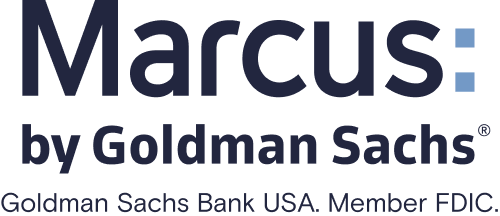Fidelity CD Rates: How They Compare
Fidelity’s brokered CDs can have competitive rates, but bear in mind they fluctuate more than CDs at banks do.
Many, or all, of the products featured on this page are from our advertising partners who compensate us when you take certain actions on our website or click to take an action on their website. However, this does not influence our evaluations. Our opinions are our own. Here is a list of our partners and here's how we make money.
Fidelity’s certificates of deposit differ from traditional bank CDs since they’re brokered CDs, which are CDs issued by banks but available only to brokerage customers. Fidelity offers new-issue CDs from various banks as well as CDs sold by other investors on a secondary market.
Unlike bank CDs, brokered CD rates (before purchase) can fluctuate daily and differ from those found directly through banks and credit unions.
» Learn more about brokered CDs
Fidelity CD rates
Fidelity has at least nine terms for new-issue CDs. The following are the top CD rates available in Fidelity's marketplace for each term*:
3-month CD | 4.30% APY. |
6-month CD | 4.20% APY. |
9-month CD | 4.10% APY. |
1-year CD | 4.10% APY. |
18-month CD | 4.15% APY. |
2-year CD | 4.20% APY. |
3-year CD | 4.25% APY. |
4-year CD | 4.35% APY. |
5-year CD | 4.45% APY. |
10-year CD | Availability fluctuates. |
*Note: Rates are subject to daily fluctuations. Check Fidelity’s website for the most current rates.
» Want more options? See the best CD rates at banks and credit unions
How Fidelity CDs work
Getting brokered CDs is a more complex process than opening bank CDs.
Investment portfolio required. You must have a brokerage account, either a taxable or individual retirement account, to hold your Fidelity CDs.
Minimum per CD: Fidelity offers two different minimums: $100 and $1,000. New-issue “whole” CDs start at $1,000 and are typically issued in increments of $1,000. Fidelity also offers fractional CDs, meaning you can invest in CDs with a minimum of $100 and in increments of that amount. Unlike regular bank CDs, which may hold various amounts of money, Fidelity breaks its CDs up into smaller, typically standardized amounts. For example, buying $20,000 in CDs technically means you’re buying 20 whole CDs of $1,000 each (or 200 fractional CDs of $100 each).
Rates are banks’ decisions: Banks where the CDs originate can choose to have higher or lower rates for their Fidelity CDs than what they offer directly to their own customers.
Types of CDs: Here are several that Fidelity offers:
Regular CDs: You receive interest until the term ends, or you can decide to sell before then. The CD can have a fixed rate, as most bank CDs do, or have a variable rate, meaning the rate may change during the term.
Callable CDs: These tend to have a slightly better rate than regular CDs, but have an important caveat. The bank issuing them can “call” or cancel the CD before the term ends. This means you would receive interest only for the time you had the CD, as well as getting your initial CD deposit back.
Zero-coupon CDs: These don’t pay interest, so you make money by buying a CD at a discount and then receiving the full value at maturity. The minimum value per CD is $1,000, so you’d buy the CD for less than that.
Step-up (or step-rate) CDs: These CDs have a predetermined schedule for rate increases and are usually callable, so you might not see the rate increase before the CD gets called. (Banks also offer step-up CDs directly.)
Whole vs. fractional CDs: Fidelity CDs can only be bought in increments and it defines a whole CD as having a $1,000 increment. A fractional CD has a minimum increment and minimum deposit of $100. One caveat if you’re going for smaller increments or minimums: Fidelity states that higher yields may be available on whole CDs.
The type of CD depends on the issuing bank, which you can see in Fidelity’s marketplace.

Member FDIC
Bread Savings® CD

4.00%
6 months

Member FDIC
Marcus by Goldman Sachs High-Yield CD

4.00%
1 year

Member FDIC
Synchrony Bank CD

4.00%
14 months
More details about Fidelity CDs
Minimum increment per CD | $100 or $1,000, which means a CD investment typically must be a multiple of that amount, $100 or $1,000. Your deposit, for example, can be $20,000 but not $20,010. Note: $100 minimum is for fractional CDs. $1,000 is for whole CDs. |
Interest payment frequency | Depends on the CD. CDs can pay interest "at maturity," meaning when the term ends, or pay you monthly, semiannually or annually. The interest goes into the Fidelity account, which is a taxable brokerage account that holds the CD, not back into the CD. |
Monthly fee | None, which is common for CDs. |
Range of new CD terms | 3 months to 10 years, occasionally with a 20-year option. (The availability of certain terms may vary in Fidelity’s marketplace.) |
Compounding period | None. Brokered CDs earn simple interest, not compound interest like bank CDs do. This means you earn the same amount of interest every year of a CD's term instead of earning increasingly more interest as a CD's balance gets higher. |
Early withdrawal penalty? | None, but there could be a related cost. If you need to access money from a CD before a term expires, you must sell it on a secondary market. Selling can result in losing money on a CD. |
Renewal period? | None, unless enrolled in Fidelity's Auto Roll Service. CDs bought on Fidelity don't automatically renew like bank CDs typically do, but you can enroll in the Auto Roll Service, which reinvests a CD when it expires. The new CD might be issued by a different bank from the original CD. You can also have CDs renew within a CD ladder (see more about the CD ladder saving strategy). |
No-penalty CDs available? | No; see best no-penalty CD options. |
Fidelity IRA CD available? | Yes; while banks tend to be limited to offering CDs and savings accounts in an IRA, Fidelity offers more extensive options in an IRA, including mutual funds, stocks, bonds and CDs. If you'd rather stick to banks' IRA CDs, you can learn about some solid options. (Here’s an IRA explainer if you're new to these types of accounts) |
» Learn more about accounts on our Fidelity review
What else to know when buying Fidelity CDs
Some pros:
Fidelity can federally insure beyond a bank’s limits. Federal deposit insurance at a bank can cover only up to $250,000 per account type per customer. Since Fidelity lets you buy CDs from many banks, you can expand your protection against the possibility of a bank failing.
Range of terms is wider than you can find at most banks. Fidelity offers flexibility for short- and long-term CDs and CD ladders, with rare 10-year and 20-year terms (when available).
Some cons:
Top rates available today may fluctuate. Since the CDs are not Fidelity's, it doesn’t control what rates show up in its marketplace. There’s no guarantee you’ll find the same top rates in the morning and evening on the same day. But once you buy a CD, you lock in that rate.
Some investing knowledge required. A new investor might come across unfamiliar terms on Fidelity’s platform. For example, “coupon” refers to interest rate and “call protection” means a CD is not callable.
» Need more access to funds? See the best high-yield savings accounts instead
Brokered CDs have risks and rewards
As a brokerage, Fidelity can offer more CD options than one bank can. This could be helpful to investors who have a lump of cash suitable for CDs, but potentially overwhelming if you’re unfamiliar with investing. If you want to see more CD options, check out our list of best CD rates this month. For more about Fidelity as a broker, see our review.












